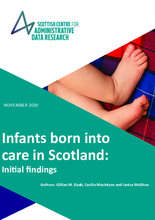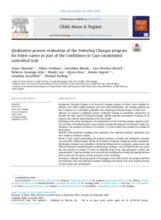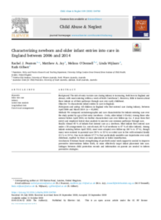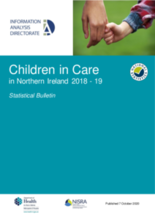Displaying 311 - 320 of 1185
This report describes the patterns of care for infants who first became looked after in Scotland when under 1 year of age between 1st April 2008 and 31st July 2017.
"About 10,000 young people move out of the care system in the UK every year," says this article from BBC News. "For some there's a sudden cut-off with little support on the other side." In the article, Kim Emenike describes her experience of what has been described as a "care cliff".
This article from BBC News tells the stories of people who experienced abuse in childhood at the hands of the head teacher at Brookside School for Maladjusted Children, a boarding school in Shropshire, UK, in the 1960s and 70s.
In this article for the Guardian, Krish Kandiah argues that "any young person ready to make the step to leave home needs the safety net of a family they belong to" and calls for greater supports for young people aging out of care, particularly in light of the COVID-19 pandemic and the subsequent lockdown restrictions put in place.
According to Northern Ireland's health minister, there has been an increase in the number of children referred to social services since last year, as well as an increase in children on the child protection register and more children in care, says this article from BBC News.
The purpose of this study was to conduct a qualitative process evaluation drawing on stakeholder perspectives to describe the logic model of Fostering Changes, identify potential mechanisms of impact of the program and enhance understanding of the trial results.
The purpose of this study was to characterize infant entries to care in England.
In this study, educational outcomes for 68 children (aged 3–9 years) in foster-care due to concerns about abuse or neglect were compared to those for 166 children with current or past child welfare involvement living at home.
This publication presents the latest figures on children and young people in care in Northern Ireland.
In this commentary, the authors explain how current circumstances reinforce the need for systemic change within statutory child welfare systems and the benefits that would accrue by implementing a continuum of services that combine universal supports with early intervention strategies.





